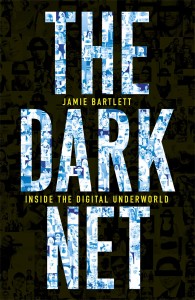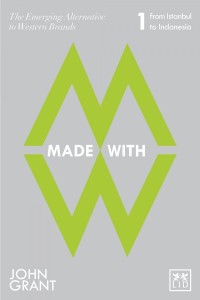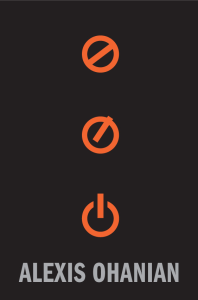We’re approaching peak panic-buying time. It’s getting to the time of year where every online purchase elicits a chill as you wonder if something’s going to hit your letterbox (or more like the sorting office) in time.
With that in mind, here are some of the best books I’ve read this year. There’s still time to order online or (better yet) go to your local bookshop and buy a copy.
How to build a billion dollar app by George Berkowski – I have to admit, the title of this book stopped me from buying it for a few weeks. It sounded a little bit too evangelical. The reality is that this is a brilliant book. Berkowski is one of the people behind the global growth of Hailo, so he knows what he’s talking about. Full of useful interviews, interesting tidbits and step by step guides to specific stages that people will hit as they build an app based business, this is an essential read for anyone who thinks that 2015 will be the year they build the next Uber.
Hooked by Nir Eyal – probably my favourite book of the year if I’m honest. This ties in nicely with Berkowski’s book – it’s all about creating habit-forming products, which is the quickest way to get to your billion dollar app valuation. There are tons of insights that I can guarantee will help make your idea or app better. Eyal makes brilliant use of case studies to illustrate his point. There’s also workbooks and tons of online resources behind the book that make it even more useful. A must read – even if you can’t be arsed starting an app but do want to understand the behind the scenes stuff that brings you back to Pinterest or Instagram over and over again.
Don’t call it that by Eli Altman – names matter. This may come as no surprise to you, but you’d be amazed at how frequently people choose almost incomprehensibly shit names for their companies. This book is a step by step guide to picking a name, finding out if it’s available, testing it in the real world and more. It’s also funny, which always helps.
Dataclysm by Christian Rudder – people talk a lot about big data, but it’s never entirely clear if anyone knows what it means. This book is not entirely about big data, but it is about the data we expose about ourselves – whether intentionally or inadvertently. It’s packed with brilliant stats and case studies. It can make for slightly depressing reading if you’re single, but don’t let that put you off…I loved it.
Startup Rising by Christopher M. Schroeder – I do quite a lot of work across the MENA region and the sheer potential that exists there never ceases to amaze me. Schroeder’s book is a brilliant examination of the characters and businesses that are building companies and ecosystems across the region. Fascinating stuff regardless of whether or not you’ve spent time in that part of the world.
No Place to Hide by Glenn Greenwald – no matter what you think of Edward Snowden’s revelations, the details of how the story broke are fascinating. Greenwald’s book is as compelling as any thriller I’ve read in the last few years. The fact that it’s true just makes it all the more chilling.
Spam Nation by Brian Krebs – spam is a universal plague. Krebs is one of the best writers on cyber-security out there. This book introduces us to some of the characters (mainly Russian) who populate the incredibly shady world of spam. Worth reading if you’ve always wondered where those ads for Cialis come from…
A few others that I’ve already reviewed on these pages – the Dark Net is an incredible look at the obscure and hidden highways and byways of the Internet. Your Brain on Porn is a grim read about the effect that always-on, always available porn is having on people. The Hard Thing about Hard Things by Ben Horowitz is a brilliant read about the less glamorous but no less important parts of business – like failure, firing people and more. Made With walks a similar road to Startup Rising – it looks at some of the emerging business across the ‘Interland’ – from Morocco to Indonesia.
In the interest of not being seen purely as some sort of tech/business book reading automaton, it’s also important to flag a few others. Thirty one nil by James Montague is a journey through the world of football’s outsiders. It’s also one of the best football books I’ve read in a very, very long time. Age of Ambition is a compelling look at fortune, truth and faith in the New China. Heaven’s Bankers is a complex, occasionally dense but ultimately rewarding book about Islamic finance. A slightly different side of Dubai is on view in Joseph O’Neill’s The Dog – occsaionally cringe worthy, frequently unbelievable and a quite remarkable skewering of life in the Vegas of the Middle East. Here are the young men is one of the best debut novels I’ve read in quite a while – think American Psycho set amongst a group of middle class, suburban Dublin teens. Amazing. Lastly, City of Lies of a beautifully written book about the Tehran we rarely (if ever) hear anything about in the mainstream media.
If you pick up any of these and enjoy/love/hate them, let me know! Happy reading.
 Casio, for those of us who remember the heady days of using a calculator for the fist time, will always be rooted in the 1970s, but the intervening decades have seen this Japanese company branch out into all kinds of technology products, not least watches.
Casio, for those of us who remember the heady days of using a calculator for the fist time, will always be rooted in the 1970s, but the intervening decades have seen this Japanese company branch out into all kinds of technology products, not least watches.
 The Internet that most people use on a day to day basis is a veneer. The part that lies unindexed by Google and unvisited by most is only occasionally glimpsed in tabloid exposes or dodgy pop-up ads on sites people visit for ‘research’.
The Internet that most people use on a day to day basis is a veneer. The part that lies unindexed by Google and unvisited by most is only occasionally glimpsed in tabloid exposes or dodgy pop-up ads on sites people visit for ‘research’.
